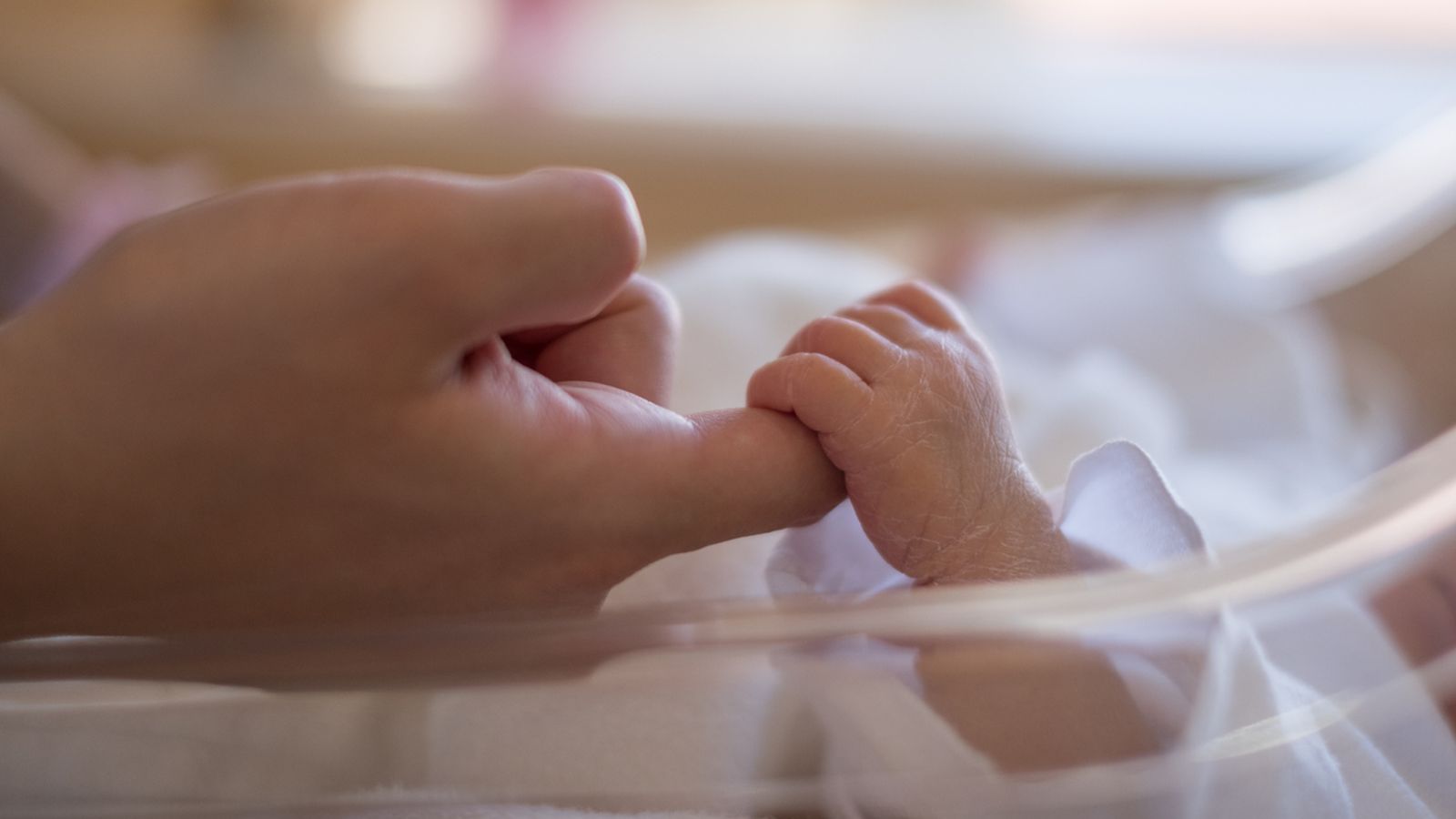Severely ill babies and children will be diagnosed and start treatment more quickly thanks to a “revolutionary” new NHS rapid genetic testing scheme.
It is estimated around 1,000 babies and children in intensive care will benefit each year from the fast-track genetic tests.
NHS England said the new genetic testing service was a “world first” and could “save the lives of thousands” of seriously unwell youngsters.
Until now, young patients may have needed several tests – sometimes taking weeks.
Under the new scheme – which has been trialled in the South West and is being rolled out across the country – children will only need to provide simple blood tests.
These will be sent off for genetic testing at a Devon laboratory and the results returned within seven days so treatment can start within a week.
During the trial, a newborn’s life was saved after his blood was sent off for rapid testing.
Economy shrinks unexpectedly in August by 0.3%, Office for National Statistics figures show
Pound fails to recover but reports suggest BoE could extend bond-buying programme
Politics latest: Fresh headaches for chancellor as Bank confirms support to end; Truss prepares for second Commons showdown with Sir Keir Starmer
NHS England boss Amanda Pritchard said the new service is the start of a “new era in genomic medicine”.
“When a child comes to intensive care, timing is everything. So finding the right diagnosis and treatment as quickly as possible is absolutely vital,” she said.
“The NHS is recognised worldwide as a world leader in genomics and this new service proves just that.”
Read more from Sky News:
Health secretary: Higher pay offer for nurses unlikely to be put on table
NHS issues urgent call for more black blood donors to treat sickle cell
Health secretary unveils £500m plan to free up hospital beds and unblock the NHS
Dr Emma Baple, who runs the National Rapid Whole Genome Sequencing Service, said it will “transform how rare genetic conditions are diagnosed”.
“We know that with prompt and accurate diagnosis, conditions could be cured or better managed with the right clinical care, which would be life-altering – and potentially life-saving – for so many seriously unwell babies and children,” she said.
“This new service, which has been over five years in the making, is a huge step-change in what we can do for these children and their families, and it is an absolute privilege for us to play a part in helping to give children up and down the country the best care possible.”







